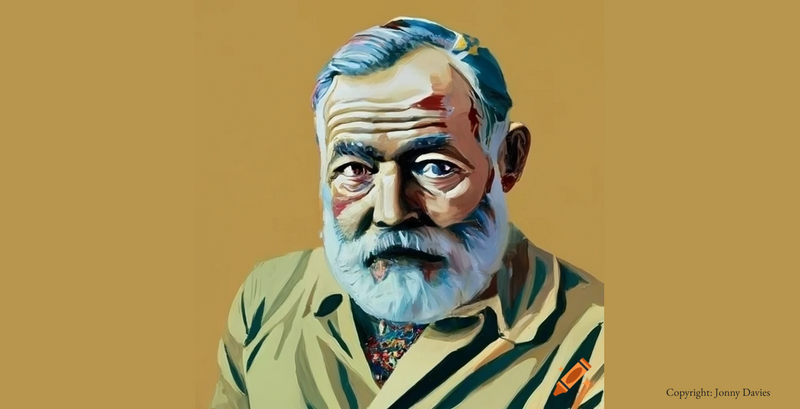
Osorno, Chile. 12th October 2020 – 12:12 pm.
At my desk, no coffee.
I will tell you how I found Ludwig and why I got drawn to it. Immediately drawn to it.
A week ago, I was getting ready to watch an episode of Poirot on YouTube (for those who don't know Poirot, Hercule Poirot is a fictional Belgian private detective created by Agatha Christie. All episodes are on Youtube and all actors, but Poirot who is Belgian, have a strong British accent). Right before my episode started, my Youtube player forced me to watch one of those boring video ads with which Youtube pays the bills. This video was different from the others. Somehow Google got it right for once: it was about a search engine for sentences that claimed it would help people write better English…
I clicked on the "Learn More" button and I found Ludwig.
Pause to Poirot and focus on Ludwig.
As an English teacher, I asked myself if I could use this tool when teaching writing to my students. At first sight, it looked promising: eight different functions to explore the meaning of a word or the translation into my language; word order and paraphrasing, discover the missing word or compare the frequency. I found that remarkable, yet there was something that I liked about it, but I just could not say what it was.

I did my first search. It always feels good to try something for the first time. I chose to discover the missing word in the sentence “want to give feedback * your homework”, because that same afternoon I left a message for a group of students and I was not sure about what preposition to use. I wrote my sentence and a list of possibilities appeared in seconds. Bang! I Loved it.

I learned that my first idea was not wrong, in English we say "feedback about" and we also say, "feedback from". It was just like having cut-outs of magazines to check the use of the language. A big smile appeared on my face. I liked this search engine. I liked it more than before, but I could not say why. Was it similar to something I had seen before?

With so many examples, I forgot what I wanted to say… I had started checking them again when it hit me: a flashback of memories took me back to the cold winter of 2011 in England. I had learned about the use of a corpus at the University of Birmingham where I did an MA. In 1986, John Sinclair had proposed the idea of learning a language by observing how it works instead of focusing on the grammar rules (At Ludwig, they call it “contextualized examples taken from reliable sources,” but the idea is the same). Back in 2011, the technology to make a corpus available to the public was probably not as good as Ludwig's technology. At that time, I wished for the possibility to improve my English on my own terms, if only I could use a few million words and a search engine (sigh). Students sigh a lot, you know. Lots of ideas and such a short time to study abroad.
But at that moment, the search engine was right before me, the desire of my heart to learn from examples, from a variety of sources to deduce my own way to use the language was a reality. It was as if my mind had found the lost treasure and for a good five minutes was lost between the ideas that came back from 2011 and the ideas of what would be possible from then on.
I needed to download my search, I wanted to study it, learn from it, and then teach with it! But I could not find a way to do that. No key to save the search. Maybe nobody else is interested in it. This little frustration brought me back to my chair and Poirot came forward.
Pause to Ludwig. Back to my mystery series.
That evening, I got a welcoming message from Roberta and she asked if I had any comments? I asked her about saving the search. Antonio answered the following day.
And that email became the beginning of this diary.
To be continued…






